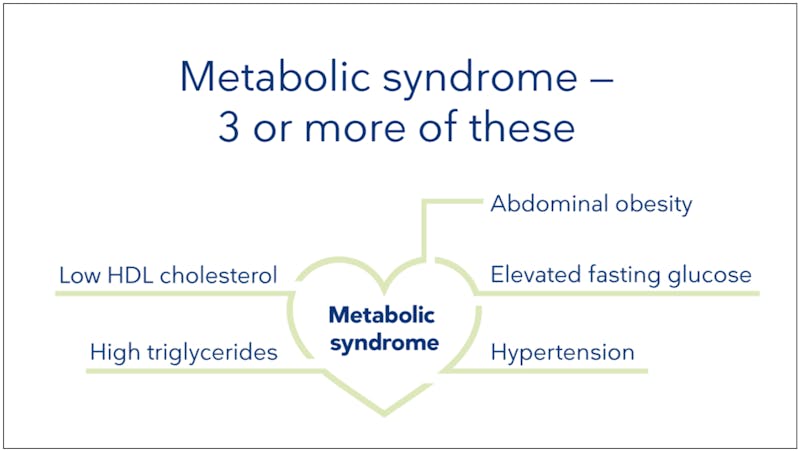New organization promotes low carb for metabolic health

Reducing dietary sugars and starches can help people normalize blood sugar levels, reach a healthy weight, reduce high blood pressure, and improve health in many other ways. So why don’t more healthcare providers recommend this simple dietary intervention?
The answers to that question are numerous and complex, but one reason is that many clinicians don’t know about the benefits of low-carb diets or how to safely and effectively use them with their patients. Some people continue to believe these diets are dangerous, unsustainable, boring, or ineffective.
A new, non-profit organization, the Society for Metabolic Health Practitioners (SMHP), is working to change those inaccurate perceptions. SMHP was formed to promote diet and lifestyle interventions, including low-carb approaches, that can help people achieve or maintain metabolic health.
What is metabolic health?
Although it may not be googled as frequently as “how to lose weight,” metabolic health is quickly becoming an important goal for many individuals. Metabolic health means having normal numbers for a handful of powerful predictors of chronic disease: blood sugar levels, waist circumference, blood pressure, triglycerides, and high-density lipoprotein (HDL) cholesterol.
You may not know what your blood sugar, blood pressure, or blood lipid levels are right now, but if you’re taking one or more medications to keep them under control — or if you’ve been told by a healthcare provider that you have metabolic syndrome or prediabetes — you’re probably not in good metabolic health.




Why do you need metabolic health?
If you have diabetes or heart disease, or if you are at high risk for diabetes or heart disease in the future, taking steps now to improve or protect your metabolic health can pay off in the long run.
A primary benefit of metabolic health is that you may be able to avoid taking expensive medications with unpleasant or dangerous side effects. If you have prediabetes or type 2 diabetes, you may also be able to prevent the advancement of disease — or even reverse type 2 diabetes entirely.
Metabolic health has become even more critical during the pandemic, as public health researchers repeatedly uncover links between poor metabolic health and worse outcomes from Covid-19. Preventing or reversing metabolic conditions such as high blood sugar or high blood pressure may reduce your risk for a severe case of Covid-19.
Finally, good metabolic health can make it more likely that you will enjoy an active, productive life at any age.
Luckily, getting back to good metabolic health is not difficult.
Can low carb lead to metabolic health?
High blood sugar is one of the most common signs of poor metabolic health. High blood sugar is also one of the factors that can contribute to severe complications or death from Covid-19. Yet, high blood sugar levels can be safely reversed with a low-carb diet, often in a matter of days.
A low-carb diet limits the sugars and starches in your diet. Many people benefit from very low-carb intake, but more gradual dietary changes can also have powerful positive effects on metabolic health. Carbohydrate reduction can fit into any eating pattern, including vegetarian, vegan, Mediterranean, and others.
Diet Doctor has many low-carb resources, including shopping lists, meal plans, and a continuing education course for clinicians. For over a decade, Diet Doctor has helped spread the word about how low-carb diets are a safe and effective approach to metabolic health. Now they have a new ally in this mission.
Like Diet Doctor, SMHP wants to help make low carb simple. Because carbohydrate reduction is not widely used or well understood, especially by clinicians, SMHP will focus on increasing knowledge about low-carb diets, along with other diet and lifestyle approaches that can improve metabolic health.
This organization, created by Doug Reynolds of LowCarb USA, recognizes multiple paths to metabolic health. It also acknowledges that weight loss does not have to be the only way to improve health.
Although many people do lose weight and gain health on a low-carb diet, reducing carbs can help you reverse metabolic syndrome even if you don’t lose weight. This can be a life-changing message for people who struggle to lose weight.
If you’d like to help change attitudes toward low-carb diets and help clinicians and health experts shift the focus from “sick care” and weight loss to achieving and maintaining metabolic health, SMHP has something for everyone.
How you can participate
SMHP membership is open to researchers, healthcare professionals, health coaches, and the general public, This “big tent” recognizes that everyone’s participation is needed to improve healthcare across the globe.
If you are a healthcare professional, you may want to:
- Be added to the SMHP provider map (Diet Doctor has one as well.)
- Become a member of SMHP. If you join before January 1, 2021, you have the honor of being a founding member, with a corresponding badge next to your provider entry.
- Participate in SMHP’s member forums. Here you can network with like-minded colleagues, discuss patient and client cases, and help shape the future of SMHP’s advocacy and educational mission.
- Check out SMHP’s accreditation pathways to become a certified metabolic health provider.
SMPH is a registered 501(c)3 organization, meaning all donations of support are tax-deductible.
If you are not a healthcare professional, you can still be a part of the work SMHP does. SMHP has several new projects underway and will be looking for volunteers. Sign up for the newsletter to hear about the latest opportunities to work for greater acceptance and understanding of low-carb diets.
While you’re at it, check out SMHP’s partner organization, Metabolic Multiplier. This grassroots volunteer organization supports clinicians, patients, and researchers by curating and amplifying information about metabolic health. You can lend your talents to the work being done at Metabolic Multiplier, which in turn supports the work at SMHP.
Even though the American Diabetes Association has recognized the value of carbohydrate reduction, too many individuals still believe low-carb diets are a “dangerous fad.” Diet Doctor, SMHP, and Metabolic Multiplier — along with many other organizations — are working to correct that thinking and make low-carb diets available to everyone who needs them.
More posts
New study claims red meat leads to heart disease
Do low-carb eaters burn more calories?
Men lose more weight on a low-carb diet than women — but why?